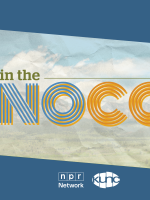If you visit the northwest of Denver, you see different types of wildlife, miles of hiking and biking trails and acres of rolling prairie.
But you don’t see any trace of the of what happened there during the Cold War: Rocky Flats was the site of a plant that made plutonium triggers for nuclear weapons until it was shuttered in the early 1990s.
Officials removed later removed the buildings used in processing plutonium and cleaned up the area. And after a series of sometimes , the wildlife refuge opened to the public in 2018.
Filmmaker Jeff Gipe explores that history in a , Half-Life of Memory: America’s Forgotten Atomic Bomb Factory. Gipe grew up in nearby Arvada. His father worked at the plant in the 1980s.
Gipe says he made the film to remind people of the hazards buried beneath the wide-open spaces of the wildlife refuge, and to share the voices of workers whose lives were affected by the dangerous materials processed at Rocky Flats.
Today we’re listening back to Gipe’s conversation with Erin O’Toole recorded ahead of the film’s premiere at the Denver Film Festival in November.
The documentary is now available for streaming on Apple TV+ and Amazon Prime Video, and will be at the Colorado Environmental Film Festival in Golden. Find the complete lineup and .
You can watch the film’s .









